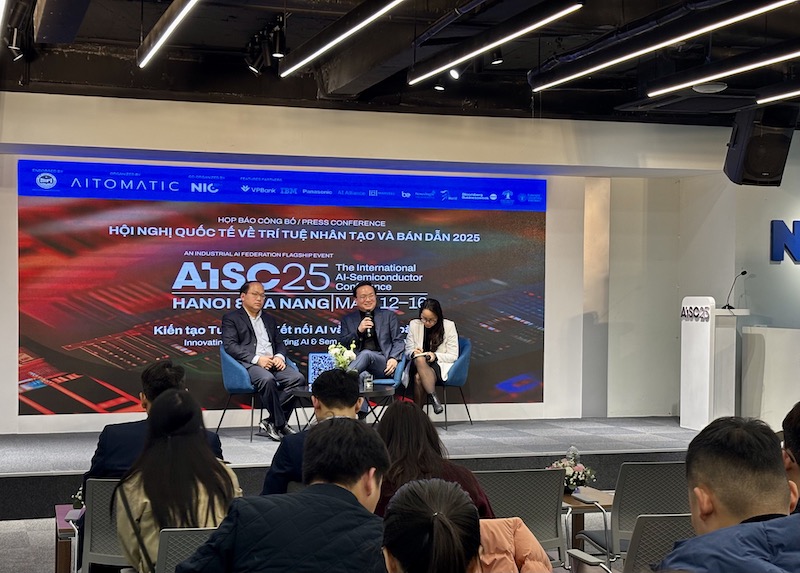Monday, 17:15 16/09/2019
Vietnam enterprises should actively manage tax risks: EY
The tax environment has been affected by trade wars, political instability, the world economy’s volatility and rapid technology advancement.
Companies in Vietnam should properly invest the right resources in order to meet and comply with new regulations, as well as to avoid tax risks given changes in the global business environment and newly issued regulations and guidance on corporate tax obligations, EY Vietnam experts suggested.
The advice was given at the 2019 Tax Symposium “How to better accommodate to increasingly stringent tax administration system driven by digitalization”, co-organized by EY Vietnam and Vietnam CFO Club on September 13 in Hanoi.
The tax environment has been affected by trade wars, political instability, the world economy’s volatility and rapid technology advancement. In the context of escalating trade conflicts around the world, countries are using tariffs as major weapons to reestablish trade fairness. However, they also create direct pressure on businesses and require them to restructure their global value chain and supply chain, according to EY.
In 2015, the Organization for Economic Co-operation and Development (OECD) introduced its policy recommendations through the Base Erosion and Profit Shifting (BEPS) Inclusive Framework with 15 actions. BEPS has attracted participation of more than 100 countries over the world, including Vietnam. All member countries must institutionalize the framework.
In addition, the rapid development of e-commerce and the Fourth Industrial Revolution have brought new challenges to many countries in taxing the digitalized economy. On June 9, 2019, G20 ministers of finance and central bank governors agreed that a global system to tax internet-based giants is urgently in need.
On that basis, Vietnam’s tax policies have remarkable changes, especially in tax administration reforms. The recent tax regulatory amendments aim at reducing tax compliance costs and increasing the information technology application for businesses to better comply with tax regulations.
The revised Tax Administration Law, passed by the National Assembly on June 13, 2019, will take effect from July 1, 2020. This law introduces some new regimes on the implementation and management of taxes on the internet platform (e-tax).
Accordingly, for the first time, the law sets regulations on e-invoices, which will be effective from July 1, 2022. It requires goods sellers and service providers to issue e-invoices to buyers. Sellers’ computers for invoice calculation and e-invoices issuing, if used, must be registered and connected with the tax authorities’ data system.
The law introduces for the first time tax administration rules for e-commerce activities. Foreign suppliers running e-commerce businesses, but having no permanent establishment in Vietnam, are obliged to register, declare and pay taxes in the country. In addition, commercial banks are responsible for withholding and making tax payments on behalf of overseas businesses and individuals conducting e-commerce activities and deriving income from Vietnam.
Beside the tax policy changes and administration reforms, tax inspection and examination activities are expected more effective, gradually. The focuses of the State Inspectorate in the coming time are (1) inspecting businesses whose tax contribution is potentially significant, and (2) enhancing after-tax-returns examinations, especially at businesses that have inter-company transactions and signal of transfer pricing issues.
“The inspection activities will be more effective given the aid of advanced technology,” said Huong Vu, general director, EY Consulting Vietnam. “As the tax authorities’ management have become more effective, businesses must be better compliant to avoid tax penalties and back taxes."
Participants at the symposium expressed many concerns about new regulatory compliance, especially e-invoicing, transfer pricing and personal income tax. EY Vietnam experts structurally explained and addressed the knowledge and practical experience in dealing with corporate tax, tax risk management, plus the preparation for tax inspections at the event.

A view of EY Tax Symposium. Photo: EY
|
The tax environment has been affected by trade wars, political instability, the world economy’s volatility and rapid technology advancement. In the context of escalating trade conflicts around the world, countries are using tariffs as major weapons to reestablish trade fairness. However, they also create direct pressure on businesses and require them to restructure their global value chain and supply chain, according to EY.
In 2015, the Organization for Economic Co-operation and Development (OECD) introduced its policy recommendations through the Base Erosion and Profit Shifting (BEPS) Inclusive Framework with 15 actions. BEPS has attracted participation of more than 100 countries over the world, including Vietnam. All member countries must institutionalize the framework.
In addition, the rapid development of e-commerce and the Fourth Industrial Revolution have brought new challenges to many countries in taxing the digitalized economy. On June 9, 2019, G20 ministers of finance and central bank governors agreed that a global system to tax internet-based giants is urgently in need.
On that basis, Vietnam’s tax policies have remarkable changes, especially in tax administration reforms. The recent tax regulatory amendments aim at reducing tax compliance costs and increasing the information technology application for businesses to better comply with tax regulations.
The revised Tax Administration Law, passed by the National Assembly on June 13, 2019, will take effect from July 1, 2020. This law introduces some new regimes on the implementation and management of taxes on the internet platform (e-tax).
Accordingly, for the first time, the law sets regulations on e-invoices, which will be effective from July 1, 2022. It requires goods sellers and service providers to issue e-invoices to buyers. Sellers’ computers for invoice calculation and e-invoices issuing, if used, must be registered and connected with the tax authorities’ data system.
The law introduces for the first time tax administration rules for e-commerce activities. Foreign suppliers running e-commerce businesses, but having no permanent establishment in Vietnam, are obliged to register, declare and pay taxes in the country. In addition, commercial banks are responsible for withholding and making tax payments on behalf of overseas businesses and individuals conducting e-commerce activities and deriving income from Vietnam.
Beside the tax policy changes and administration reforms, tax inspection and examination activities are expected more effective, gradually. The focuses of the State Inspectorate in the coming time are (1) inspecting businesses whose tax contribution is potentially significant, and (2) enhancing after-tax-returns examinations, especially at businesses that have inter-company transactions and signal of transfer pricing issues.
“The inspection activities will be more effective given the aid of advanced technology,” said Huong Vu, general director, EY Consulting Vietnam. “As the tax authorities’ management have become more effective, businesses must be better compliant to avoid tax penalties and back taxes."
Participants at the symposium expressed many concerns about new regulatory compliance, especially e-invoicing, transfer pricing and personal income tax. EY Vietnam experts structurally explained and addressed the knowledge and practical experience in dealing with corporate tax, tax risk management, plus the preparation for tax inspections at the event.






